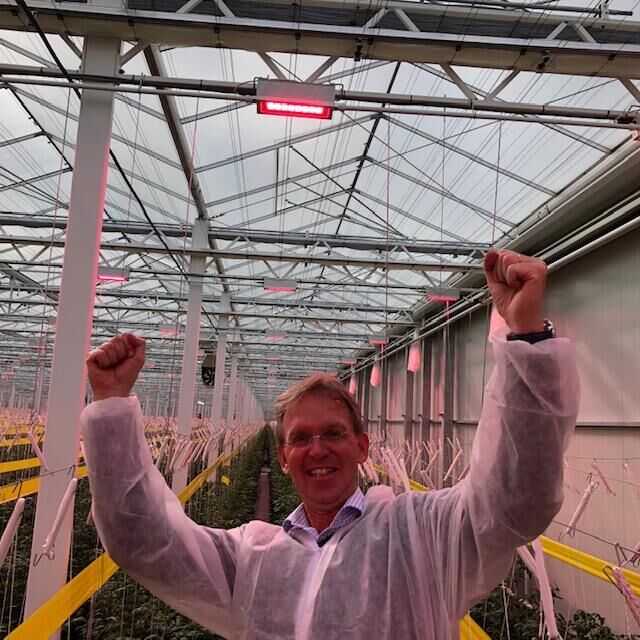News
This is how Peter is trying to make the world a better, more sustainable place
What motivates Peter Barentsen, International Sales Manager at Oreon? What part is he playing in sustainability? How does he see the future of the greenhouse horticulture sector, and what role does he see himself playing in it? “I’d like to be able to contribute to this through my work.”
Peter visits greenhouse growers over the world on a regular basis. He sees greenhouses where up to three thousand lights are on all night long in order to provide the crops with sufficient light. It consumes tons of energy. What’s more, heat, water and CO₂ are often wasted—raw materials that can be used considerably more economically. That can and must change, he says, especially when considering climate change, sustainability, the environment and energy transition.
Health & Safety Service
Before Peter came to Oreon, he worked for a health & safety service. In that capacity, he frequently saw unhappy employees. Unhappiness invariably has an effect on a person’s physical or mental health. “You have to break through that. Not only for yourself and for the boss, but also for the immediate environment,” he explains. “It is so important that you’re at your best in your work. That your mortgage is not your main motivator, but that you enjoy what you're doing. That you’re in charge of your own life and your own well-being.”
Over the course of time Peter saw this unhappiness in himself, too, and switched to working at Oreon: That was two years ago. “At the time, I didn’t know anything about LED fixtures, but my mind was like a sponge. I knew all about work absenteeism, but this was a whole new world. So I found myself full of energy in my work, because technology and innovation are something I’m really interested in.”
The world is changing
He notices, partly due to his work, how the world is gradually changing. He’s becoming more and more aware of the earth’s increasingly fragile condition. That innovations are needed to turn the tide. “But I, too, only recently put in LED lighting at home, because it is now affordable. It had always been too expensive, which is often the deciding factor.” He compares it to cell phones: ten years ago, they took huge strides forward. “That’s also true of LED. The development is still continuing, but the steps become smaller and smaller. Now it is affordable for everyone.” Peter is convinced that Oreon, and therefore he, too, is making an important contribution. “Absolutely, I even talk about it at parties and I’m a kind of ambassador. Describing the path that tomato took before it ended up on your plate. Saying we should all be more conscious of it.”
Vertical farming
He paints a picture of some of the future. In 2050 there will be too little agricultural land to feed the world’s population. “One solution is to grow vegetables vertically. This is one of the options we offer at Oreon, with the multi-layer fixture. Right now, you grow a thousand heads of lettuce on a hundred square meters. If you expand in height, you can grow nine times as much,” Peter says. “What’s more, right now it takes four to five weeks to produce lettuce. With LED lighting you can shave off a couple of days, which is huge on an annual basis. So, by consuming less energy, you get both qualitatively better lettuce and more lettuce. Isn’t that fantastic?” Peter feels that we have really already reached the turning point for the energy transition that is so urgently needed. “What I love most is that the greenhouse horticulture sector is made up of people who have their heart in the right place. Hard workers who want to have the best possible product. By investing in LEDs now, they can make a difference now and in the future, and it will also yield them considerably more in the end. That is how I’d like to be able to contribute to this through my work.”
